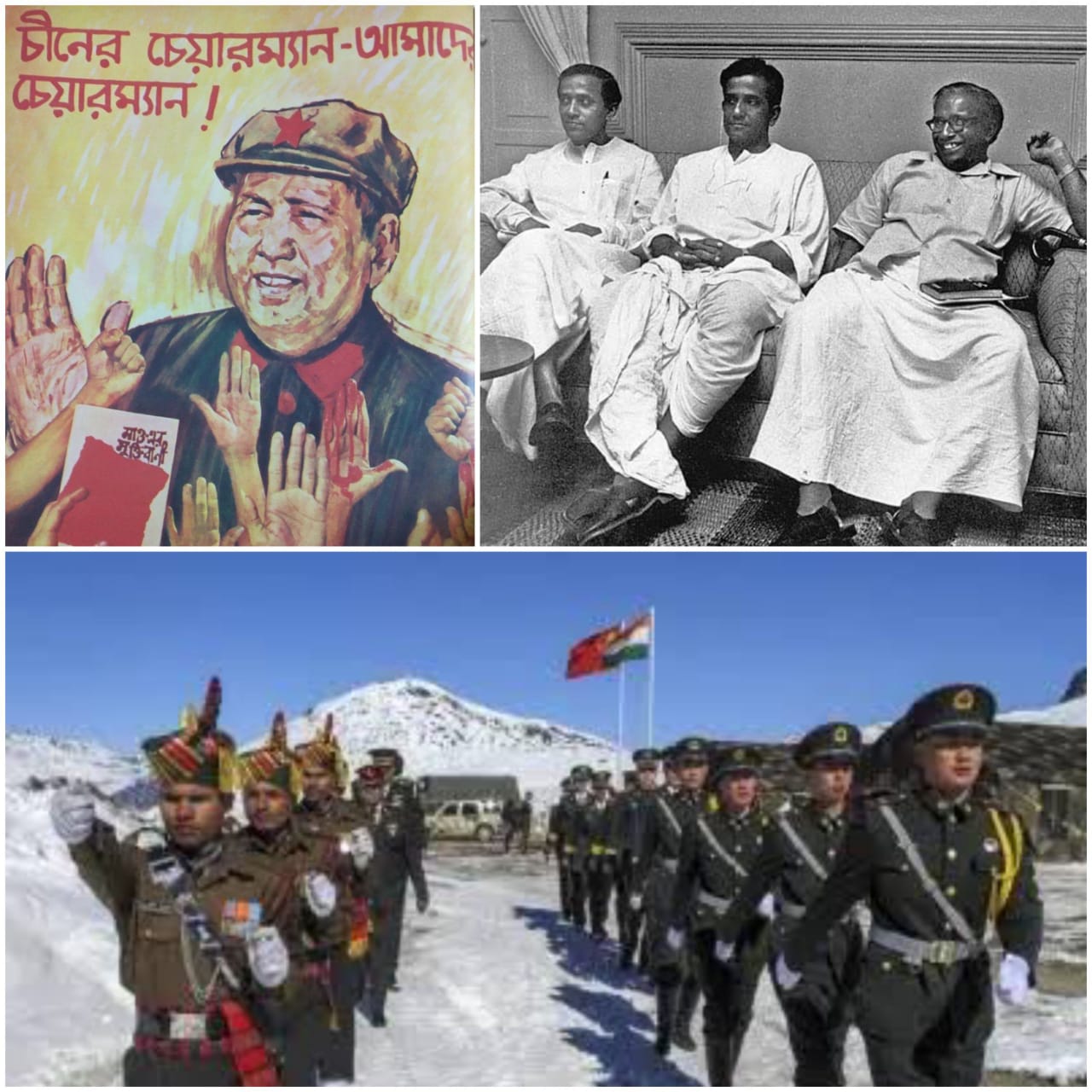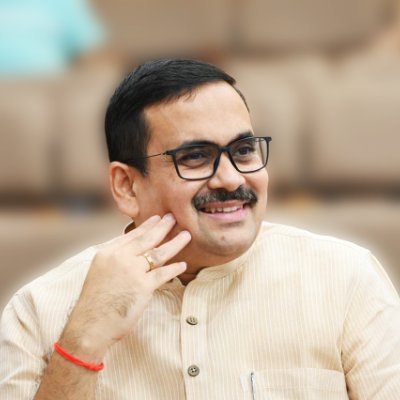Be it remembered that the Communist Party of India (Marxist), the CPIM, was formed in the aftermath of the Chinese aggression in 1962, by leaders who firmly believed that China was not the aggressor and that by siding with the Government of India on this issue, one would only give in to “revisionist bourgeois nationalism.” True to their founding “ideal” thus, the current crop of CPIM leaders, even in 2020, on the Galwan Valley issue, have adhered to that stance. In the All Party Meeting (APM), convened by Prime Minister Modi last week, the CPIM, along with the Congress were the only parties which came out questioning our armed forces and our Government, but had no word of castigation for the Chinese nor for what they had attempted to do in the Galwan Valley area.
CPIM General Secretary Comrade Sitaram Yechury, who attended the APM resurrected, out of season, a buried “Panchshila”, a requiem to which has been sung long back. The CPIM Politbureau’s statement, issued on 16th June, 2020, condoled the death and sacrifice of our Jawans as an aside, tucking-in one line somewhere in between, while terming the Chinese aggression and violence on our Jawans as merely “unfortunate.” The statement also hinted that the onus of a return to tranquillity solely lay with the Indian side. The CPIM believes that by supporting the Government of India, led by Prime Minister Modi, it shall capitulate to “revisionist bourgeois nationalism.”
Not only this, its Bengali mouthpiece, “Ganashakti”, also allotted disproportionate space in its paper to the Chinese government’s version of what the Indian soldiers had done. Such a brazen expression of solidarity, despite their trying to justify or explain it away later, generated strong resentment among a wide cross section of people in West Bengal.
Those who were privy to the heated political discussion being undertaken within the Communist party between its top ideological gasbags during the Chinese attack of 1962, have left an interesting account of what transpired in the ranks of this peculiarly structured and oriented party which has always been divorced from the reality and truths of India.
P. Sundarayya, later one of the founding members of the CPIM, at the head of an influential section within the party, comprising of B.T.Ranadive, Promode Dasgupta, M.Basavapunniah, Harkishen Singh Surjeet and others, refused to admit that the Chinese party was wrong in sanctioning an attack on India. One of the most astute chronicler of the communist movement in India, Mohit Sen, for instance, in his detailed and meticulous memoirs gives a detailed account of how the communists behaved during 1962. Sen, then a member of the CPI, who would later quit the party and form his own political outfit, in his “Traveller and the Road – the journey of an Indian Communist”, writes how Sundarayya came “armed with maps and archival material to prove that the territorial claims of China had a valid basis” and harped on his point that the “Chinese Communists would never commit aggression while the bourgeois Indian government could do so to curry favour with the imperialists.”
This faction went around telling their followers that it was “Pandit Nehru who had sanctioned the attack on the Chinese” to curry favour with the USA” and that the Chinese had given Nehru a rebuff and had “thereby helped the Communists in India by exposing and weakening their main enemy.” The soon to be founders of the CPIM, peddled the line that “whatever be the consequences, the CPI as a Communist party should stand with the Chinese Communists as this was its proletarian internationalist duty.”
A powerful section, thus, within the CPI, as Sen recalled, “who went on to form the CPIM believed that the Chinese Communists had done nothing wrong in attacking India.” They “thought that this was not an attack but a defensive action and that in the not-so-long run the Chinese action would help the advance of the revolution by weakening the power of the ruling alliance, especially by pulling down the prestige of the Congress and its leader Pandit Nehru.”
It is a strange irony of fate that Pandit Nehru’s great grandson, Rahul Gandhi, who suffers from a poor sense and knowledge of Indian history, and his mother, have now pushed Nehru’s party so far left that it now sides with the party which had sided with China in 1962 and agreed with the Chinese line that Nehru had to be taught a lesson, that he needed to be humiliated, removed “from the political scene” and his “national standing and international stature” needed to be pulled down!
The acute tug of war between the Dange faction, which spoke for standing by Nehru, and the other faction, led by EMS Namboodiripad, Sundarayya and others, who vociferously articulated the CPC line, exploded out in the open. The situation also exposed, the duplicitous credentials of many a Communist ideologue. EMS, without informing Dange, convened a press conference in the CPI office and when asked, records Sen, “whether he thought the Chinese had committed aggression”, replied that the Chinese “had entered territory that they thought was theirs and hence there was no question of aggression as far they were concerned.
At the same time, the Indians were defending territory that they considered their and so they were not committing aggression either.” Meanwhile, Dange, barged in and is said to have “sarcastically” asked EMS, “and what is your opinion about the territory in question” and while EMS fumbled for an answer, Dange stated that the “Chinese had attacked India, occupied Indian territory and the Communists supported Nehru’s call to the nation to defend itself…” The stalwarts who founded the CPIM never had India’s interest in mind, they never took a stand in support of India, and they never adopted a stance that would favour India. They had surrendered to their “internationalist proletarian” commitments and India and her national interest did not matter.
Sen also records that despite all his vocal effort to position the CPI apart from the Chinese line, neither Dange, “nor anybody else went beyond categorising the Chinese attack as a mistake and an aberration.” The faction, which had vocally voiced the line that Mao’s China was not the aggressor, “were aware of the cavalier, contemptuous and even deceitful manner in which their party and its leaders had been treated by Maoists”, that is, the Maoist establishment in China, and yet like docile and well trained mouthpieces of the CPC, continued with trying to mobilise support for it.
In the years to come, the CPI would again align itself with the CPIM, become subservient to it and continue as a silent appendage within the larger Left Front, of which the latter became an increasingly dominant and hegemonistic constituent.
What the CPIM leaders are thus doing in the summer of 2020, vis-à-vis the Chinese and the Galwan faceoff, is similar to what their founding members and ideologues had done, that is, trying to project India has the aggressor and usurper. The only difference with then and now, is that they find Nehru’s party siding with them.
(The writer is Director, Dr Syama Prasad Mookerjee Research Foundation)
Image Source: https://m.freepressjournal.in
(The views expressed are the author's own and do not necessarily reflect the position of the organisation)


